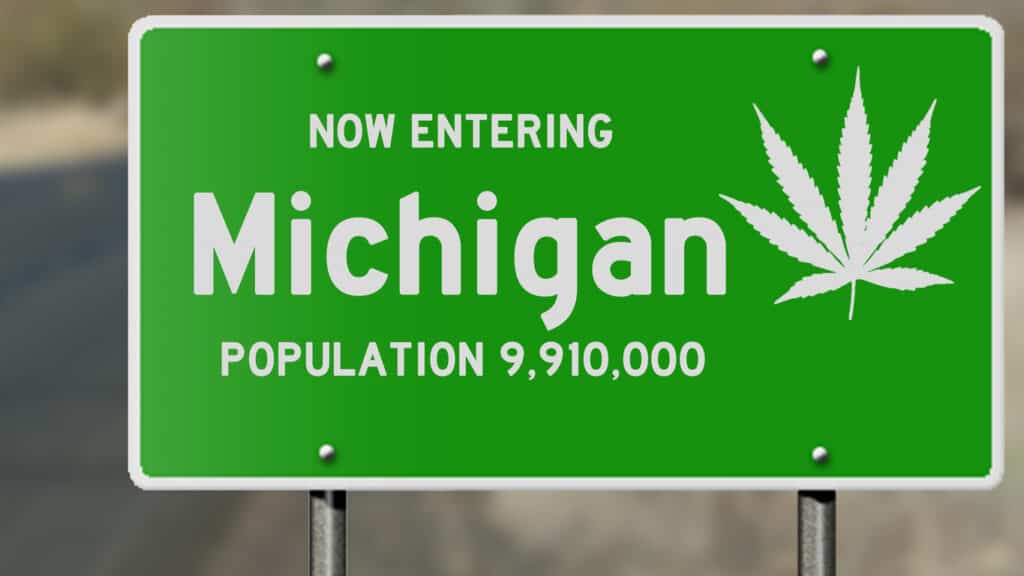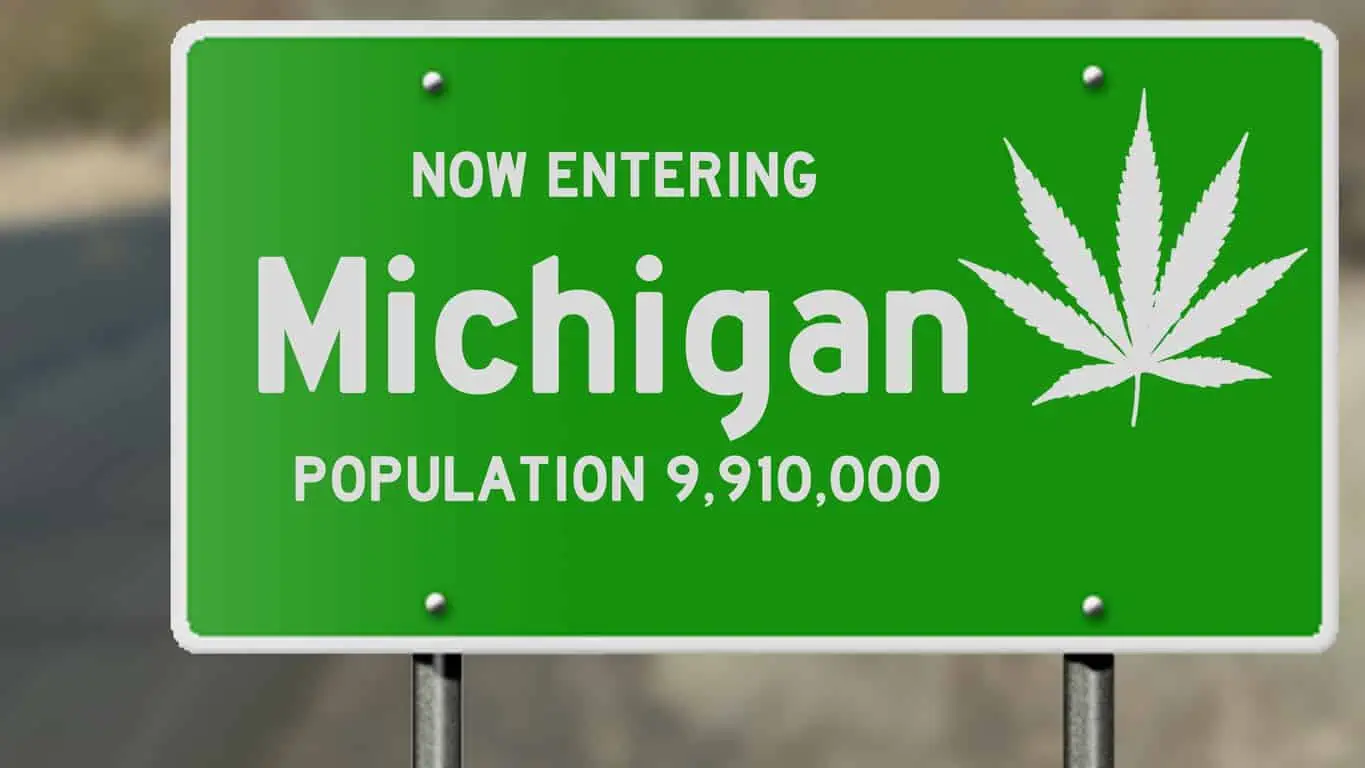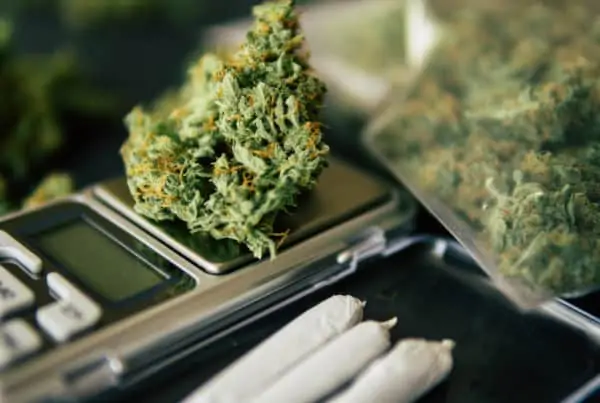TABLE OF CONTENTS
Our guide on how to start a marijuana business in Michigan breaks down each step of the state’s application process to start a medical or adult-use establishment.
Michigan does not limit the number of cannabis establishments that can be licensed. However, a county or municipality may set their own rules and regulations. Learn how to start a marijuana business in Michigan in this guide.
Industry Snapshot: Michigan Cannabis Laws
Michigan allows for the sale, production, and use of medical and adult-use marijuana. Medical cannabis became legal in 2008. Recreational cannabis in Michigan became legal in 2018.
During the first 24 months of the adult-use program, only licensed medical marijuana operators could apply. It's since changed.
If you want to get a cannabis establishment license for either program, you must apply with the state’s Marijuana Regulatory Agency (MRA), part of the Department of Licensing and Regulatory Affairs (LARA).
Michigan Cannabis Business License Types
Medical
- Grower Class A: Up to 500 plants
- Grower Class B: Up to 1,000 plants
- Grower Class C: Up to 1,500 plants
- Processor
- Provisioning Center
- Safety Compliance Facility
- Secure Transporter
Adult-Use
- Class A Marijuana Grower: Up to 100 plants
- Class B Marijuana Grower: Up to 500 plants
- Class C Marijuana Grower: Up to 2,000 plants
- Designated Consumption Establishment
- Marijuana Event Organizer
- Marijuana Microbusiness: Authorized to sell, process, and grow up to 150 cannabis plants
- Marijuana Processor
- Marijuana Retailer
- Marijuana Safety Compliance Facility
- Marijuana Secure Transporter
- Marijuana Event Organizer
Cannabis Licensing Application Process Michigan
Medical and adult-use business licensing can be completed online or through a paper application. If completed online, applicants must register and create an Accela user account. The application process involves two main steps.
Step 1: Prequalification Application
The main applicant and each supplemental applicant will need to submit pre-qualification applications. This process involves background checks of all applicants.
If you qualify as a member of a disproportionately impacted community and want to participate in the Social Equity Program, you must apply with the Social Equity Program before submitting a pre-qualification application.
Main applicants must submit a non-refundable $6,000 application fee. The fee does not apply to supplemental applicants.
Supplemental applicants vary depending on the business structure.
Prequalification status is valid for two years. The applicant has within two years to complete the Step 2 application.
Prequalification will require the following items and supporting documents:
- Demographic information
- Attestations
- Disclosures
- Copy of governing documents
- Certificate of good standing
- Approval to conduct business transactions in Michigan (if applicable)
- Certificate of assumed name (if applicable)
- Summary of facts and circumstances concerning a license denial, restriction, revocation, suspension, or nonrenewable (if applicable)
- Copy of notice of tax liability due (if applicable)
- Copy of litigation documentation (if applicable)
- Copy of organizational structure
Step 2: Establishment of Cannabis License Application
During step 2, the main applicant submits the establishment license application for all of the types of licenses they are applying for. During this step, the MRA will look over the proposed marijuana establishment application.
The MRA review includes but is not limited to proof of financial responsibility, business specifications, municipality information, and general employee information.
In addition, the location of the establishment must pass an inspection by the MRA within 60 days of applying.
Class A, B, C, and excess marijuana growers, as well as marijuana processors, designated consumption establishments, and marijuana microbusiness must pass a Bureau of Fire Services (BFS) plan review.
All establishments, except temporary marijuana events and marijuana event organizers, must pass a BFS inspection within 60 days of submitting a complete application.
Note: The MRA must approve or deny an application within 90 days for adult-use or 180 days for medical business application upon receiving a complete application and fee.

Michigan Adult-Use Cannabis Licensing Fees
| State License Type | Initial Licensing Fee |
| Class A Marijuana Grower | $4,000 |
| Class B Marijuana Grower | $8,000 |
| Class C Marijuana Grower | $40,000 |
| Excess Marijuana Grower | $40,000 |
| Marijuana Microbusiness | $8,000 |
| Marijuana Processor | $40,000 |
| Marijuana Retailer | $25,000 |
| Marijuana Secure Transporter | $25,000 |
| Marijuana Safety Compliance Facility | $25,000 |
| Marijuana Event Organizer | $1,000 |
| Temporary Marijuana Event | See Rule 26 in the Marihuana Licenses Rule Set |
| Designated Consumption Establishment | $1,000 |
Medical Marijuana Licensing Fees in Michigan
Medical marijuana applicants (except for safety compliance facilities) must pay the fee for an annual regulatory assessment set annually.
| License Type | Licensing Fee |
| Grower Class A | $7,000 |
| Grower Class B | $14,000 |
| Grower Class C | $21,000 |
| Processor | $21,000 |
| Provisioning Center | $13,125 |
| Secure Transporter | $13,125 |
| Safety Compliance Facility | No fee |
How to Start a Marijuana Business in Michigan: More Info
How to Get Your Marijuana Business Off the Ground in Michigan: A Step-by-Step Instructional Guide
The state of Michigan has made tremendous progress toward cannabis reform, as evidenced by its laws pertaining to medicinal marijuana and the future legalization of cannabis for recreational use.
As a direct consequence of this, business owners in Michigan have access to lucrative opportunities in the state's cannabis market.
The following is a step-by-step guide to how to start a marijuana business in Michigan, in the event that you are considering entering this market:
- Determine the Kind of Organization You Will Be:
The following categories of marijuana-related enterprises are permitted to operate in Michigan:
Producers and manufacturers
Safe movers and transporters
Facilities for ensuring safety and compliance
Dispensaries and other types of provisioning centers
Small- and Medium-Sized Businesses
- Familiarize Yourself with the Laws Regarding Cannabis in the State of Michigan:
Be certain that you have a comprehensive understanding of the Michigan Medical Marihuana Act (MMMA) as well as the Michigan Regulation and Taxation of Marihuana Act (MRTMA) before moving forward with this process.
- Decide on a Location That Is Appropriate:
There are certain communities in Michigan that have decided against legalizing commercial marijuana operations. Check the local legislation and make sure the place you have in mind for your business is in accordance with the zoning regulations of the area.
- Ensure That You Have the Required Funding:
The marijuana industry requires a significant amount of financial investment. Make sure you have enough money to cover the application fees, licensing fees, and operating charges before you start the business. In order to obtain certain permits, you may also be required to show proof of financial responsibility.
- Fill out an Application for a State License:
Apply online by going to the website of the Marijuana Regulatory Agency (MRA). The following steps are commonly involved in the application process:
A background check will be performed on you, your stakeholders, and your spouse as part of the prequalification process.
Establishment Licensing: Once you have been prequalified, you will need to submit an application that is more extensive and includes the specifications of your business.
Approval from the Local Municipality: Make sure you get the green light from the local municipality.
- Charges and Expenses:
In Michigan, the costs connected with beginning a marijuana business might vary widely depending on the sort of business being started. These could be some of them:
-Fees for applications
-Regulatory fees and costs, as well as annual license costs
-Costs imposed by the neighborhood or town
- Ensure That You Comply With All State Laws:
After getting a license, it is essential to continue to comply with the regulations. This includes conforming to regulations for tracking and reporting, testing items, and following guidelines for packing and labeling, among other things.
- Products That Are Permitted:
In the state of Michigan, marijuana products for both medical and recreational use are legal, including but not limited to the following:
-Cannabis in any of its forms, including flowers or buds Edibles Tinctures Topical Concentrates (including wax, shatter, and oil).
-Cartridges used in vaping devices
Make sure that every product complies with the testing and packaging standards of the state of Michigan.
- Financial Obligations and Reporting:
The sale of marijuana for recreational use in Michigan is subject to an excise tax of 10% as well as a sales tax of 6%. Make sure you are reporting your profits and paying the appropriate amount of taxes, as well as keeping proper records.
- Maintain a Constant Vigilance Regarding Regulatory Amendments:
The cannabis market is undergoing dramatic change at the moment. Since statutes and regulations are subject to modification, it is essential to keep abreast of any developments and adjust accordingly.
The market for marijuana in Michigan is thriving, and with rising levels of acceptance and a consistent rise in sales, the future appears to hold a lot of potential.
Nevertheless, along with opportunities come obstacles, such as shifting regulations and increased competition.
“
There are over 300,000 jobs in the cannabis industry. CTU trained me for one of them!

Makes $24.50 @ THC +
How To Start a Marijuana Business in Michigan Summary
In order to be successful in the marijuana industry in Michigan, one must have adequate planning, financial resources, and an in-depth knowledge of both state and local legislation.
Nevertheless, if you go about things the proper way, there are a lot of opportunities in this sector.
To ensure that your company complies with all of Michigan's regulations and guidelines, you should always consider working with legal specialists who are aware with the state's cannabis legislation.
Learning how to start a marijuana business in Michigan can be overwhelming. There are many steps to follow.
Enroll in Cannabis Training University’s marijuana business training program to learn more on how to start a weed business from scratch.
Start your Michigan cannabis business today!

Fred Hernandez
Fred Hernandez is a highly accomplished and versatile writer, boasting an extensive background in the cannabis industry. With an in-depth understanding of various sectors including cultivators, processors, retailers, and brands, Fred's expertise spans across the entire cannabis landscape. As a prominent contributor to CTU, he consistently delivers insightful articles exploring the latest developments, news, and regulations shaping the cannabis industry. Whether it's delving into the intricacies of cannabis products, cannabis strain reviews, or providing comprehensive analyses of cannabis laws, or sharing expert insights on cannabis cultivation techniques, Fred's wealth of knowledge positions him as an invaluable writer and educator for all cannabis-related subjects.












 Jeff was involved in an accident where he endured a traumatic brain injury. He had a week-long stay in ICU where brain surgeons
Jeff was involved in an accident where he endured a traumatic brain injury. He had a week-long stay in ICU where brain surgeons  100% risk free money back guarantee within 48 hours after purchase if student has not completed any of the courses or exams.
100% risk free money back guarantee within 48 hours after purchase if student has not completed any of the courses or exams.